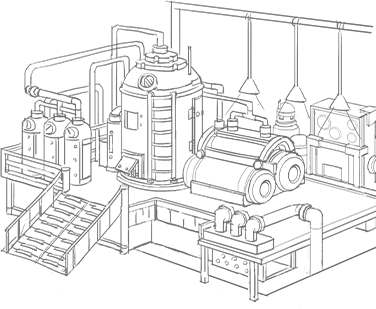
November. 19, 2024
As the global wave of Industry 4.0 continues to advance, the industrial control (IC) sector is at a critical juncture of digital and intelligent transformation. The widespread application of cutting-edge technologies such as the Internet of Things (IoT), Artificial Intelligence (AI), and Big Data in manufacturing is not only dramatically improving production efficiency and flexibility but also reshaping the way businesses operate, bringing both opportunities and challenges.
With the proliferation of 5G networks and the maturity of edge computing, industrial control systems are rapidly evolving toward intelligence. Smart factories, automated equipment, and robotic systems are gradually becoming standard in modern plants. The application of intelligent control and remote monitoring technology enables companies to monitor equipment status in real time, predict failures, and perform proactive maintenance, reducing downtime and improving operational efficiency. Through data-driven decision-making processes, businesses can further optimize production workflows, driving both capacity and quality improvements.

As the Industrial Internet of Things (IIoT) rapidly develops, the connection between industrial control systems and external networks has become increasingly close, making cybersecurity a critical focus for the industry. In recent years, frequent cyberattacks targeting industrial control systems have exposed vulnerabilities in traditional IC systems in terms of information security. To address this challenge, the IC industry is gradually adopting cybersecurity solutions, combining AI for intelligent detection and protection to ensure the safe and stable operation of devices and systems.
Driven by carbon neutrality policies, the global IC industry is accelerating its transition toward green manufacturing. Companies are optimizing energy management systems, improving equipment efficiency, and introducing low-energy automated devices to reduce carbon emissions and energy consumption. Green manufacturing is not only a reflection of corporate social responsibility but also a key approach to enhancing market competitiveness. Digital and automated technologies play a crucial role in this process, helping companies monitor and regulate resource usage more efficiently during production.

The rapid development of robotics technology is making human-robot collaboration a new trend in industrial control. Modern collaborative robots are not only capable of efficient and safe operations but can also work alongside human workers, increasing the flexibility and adaptability of production lines. As robotics technology becomes more prevalent, more companies will achieve a combination of automation and flexible manufacturing through human-robot collaboration, driving productivity gains.
The application of Big Data and AI is revolutionizing decision-making in industrial production. The IC industry is leveraging vast amounts of equipment data for intelligent analysis, helping companies optimize production processes, reduce equipment failures, and improve product quality. Predictive maintenance and real-time monitoring have become crucial methods for improving equipment utilization and lowering costs. By combining AI with Big Data, businesses can better control production workflows and make more precise decisions.
The industrial control industry is entering a new phase of development, with digitalization, intelligence, and cybersecurity becoming the core drivers of the future. For businesses, leveraging emerging technologies to enhance operational efficiency, ensure safety, and drive green transformation will be key to gaining a competitive edge in the future market. As technology continues to evolve, the IC industry will continue to thrive, helping global industries move toward a more efficient, secure, and sustainable future.
